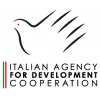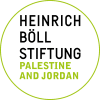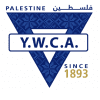استكمال وتحديث مخططات هيكلية محلية لتجمعات فلسطينية في المنط...
Call for Proposals: Scope of Work
CONSOLIDATION OF LOCAL OUTLINE PLANS FOR PALESTINIAN COMMUNITIES IN AREA C – WEST BANK
Within the ambit of the project entitled:
“Achieving Planning and Land Rights in Area C, West Bank, Palestine”
Managed by: United Nations Human Settlements Programme (UN-Habitat) in Palestine
In partnership with: The Ministry of Local Government (MoLG)
Funded by: The European Union
General Background
Comprising more than 60 per cent of the West Bank's overall territory and under Israeli military control, the designated Area C as defined in the Oslo II Accords, holds paramount importance for the contiguity of the West Bank and the viability of Palestine. Its significance extends to the thriving of the Palestinian economy, culture, and environment. However, since the signing of the Oslo II Accords in 1995, the Palestinian people have faced obstacles in harnessing the resources available in Area C due to stringent planning policies imposed by the Israeli authorities, particularly the Israeli Civil Administration (ICA), which, under International Law, is regarded as the Occupying Power.
The daily reality for many Palestinians in Area C involves demolitions, confiscations, displacement, movement restrictions, denial of access to lands, and security incidents. According to OCHA records from 1988 to 2021, the ICA issued a staggering 21,994 demolition orders against Palestinian properties across the West Bank, with a vast majority (92.8 per cent) targeting Area C[1]. Additionally, Palestinians have only been allowed to build within the confines of Israeli-approved plans, which constitutes less than one per cent of the land in Area C. In stark contrast, Israeli settlements have been granted approved plans covering about 20 per cent of Area C, depriving Palestinians of their right to development and jeopardizing their tenure security.
Since the Israeli occupation in 1967, large swaths of the West Bank have been confiscated by Israeli authorities for the construction and expansion of Israeli settlements. These lands are inaccessible to Palestinians and are not considered in Palestinian outline plans. Following the 1967 war, Israel, as the Occupying Power, initially upheld the 1966 Jordanian Planning Law Number 79. However, the Law was later amended through numerous Military Orders (MO) and regulations, notably MO 418 issued in 1971, which stripped Palestinians of the planning mechanisms previously in place under the Jordanian Planning Law. MO 418 vested all planning powers within an Israeli, military-led Supreme Planning Committee, leading to a system that largely hampers or delays planning by Palestinian communities and restricts building permits. Out of 126 outline plans submitted by Palestinian communities in Area C to the ICA, only seven have been fully approved, leaving villages and communities vulnerable to eviction and demolitions. This Israeli position contravenes International Humanitarian Law and disregards the opinions of international neutral experts and technicians[2]. The continued denial of Palestinians' right to spatial planning control, coupled with a planning system inconsistent with the principles of international human rights laws, necessitates a review of spatial planning in the West Bank by the United Nations and the international community. This calls for support to local authorities and Palestinian communities in Area C, enabling them to prepare outline plans that cater to their humanitarian and developmental needs.
In response to the restrictive planning practices, Palestinian communities began drafting their own detailed Local Outline Plans (LOPs) in 2011 and subsequently submitted them to the ICA for endorsement. The Ministry of Local Government (MoLG) oversees the planning process and negotiations with the ICA through the General Authority of Civil Affairs (GACA), ensuring that the plans are consented to by the local communities. This marked a significant policy shift for the MoLG, allowing a de-facto methodology that does not make formal ICA approval mandatory before proceeding with the implementation phase. This approach is grounded in the belief that spatial planning serves as a crucial tool for protecting human rights, particularly the right to housing and safeguarding inhabitants from the threat of demolitions and forced evictions, while promoting sustainable development for Palestinians in the West Bank.
Recognizing the need for a cautious approach towards the ICA, the 'One UN' approach to Spatial Planning in "Area C" of the occupied West Bank (2015) aligns with the general policy of the MoLG, as illustrated in the "Human Rights Impact Assessment Mechanism - Statutory Outline Plans Prepared by Palestinian Communities in the Israeli Occupied Area C of the West Bank and Submitted to the Israeli Civil Administration" completed in 2016. This approach aims to consolidate the inherent advantages associated with the new spatial planning methodology, taking into account the adoption of the 'Do-No-Harm' principle[3]. The United Nations believes that integrating local planning within the Israeli planning system can outweigh its negatives if it is part of a comprehensive spatial planning methodology that incorporates regional and national planning. Such a harmonious approach would guide local and district planning levels (city-regions) to achieve comprehensive coverage of Area C.
To support these efforts, the international community should not only continue to back LOPs, but also provide assistance in developing national and regional spatial plans, thus ensuring comprehensive coverage of Area C.
In August 2019, the MoLG announced a significant step forward by allowing all Local Government Units (LGUs) to expand their outline plans within their natural basins, following the Palestinian government's directions. This move strengthens and extends Palestinian sovereignty over lands classified as Area C, signalling a commitment to reclaiming control over their territory.
In line with this vision, the European Union (EU) collaborates with UN-Habitat and the MoLG to support a project aimed at achieving the right to plan and secure land tenure in Area C of the West Bank. This project includes interventions in spatial planning, mapping land rights, and developing land use strategies, with a focus on consolidating LOPs for Palestinian communities in Area C.Bottom of Form
If you have related experience and interested please CLICK HERE to check the tender document




















